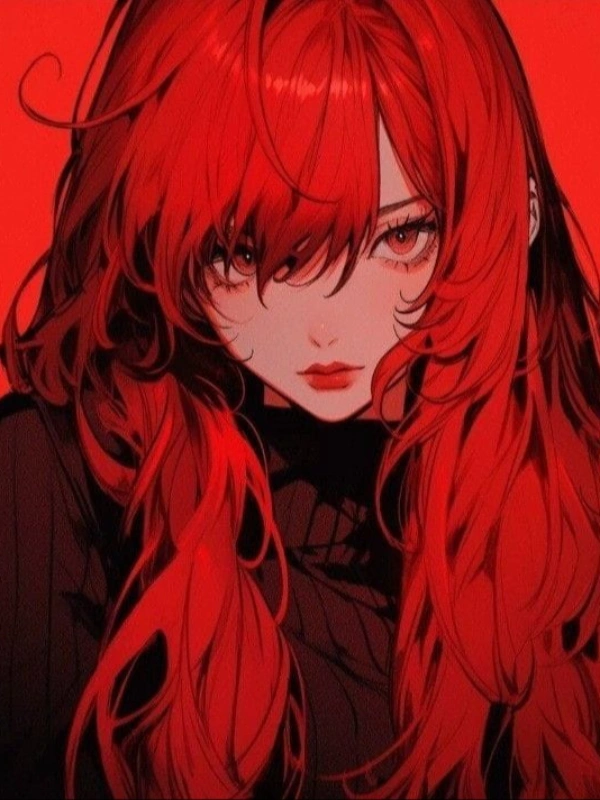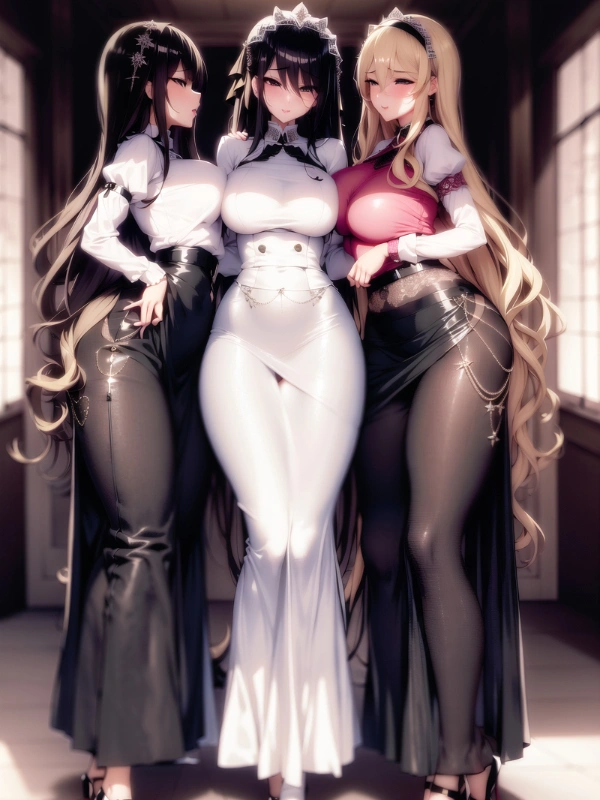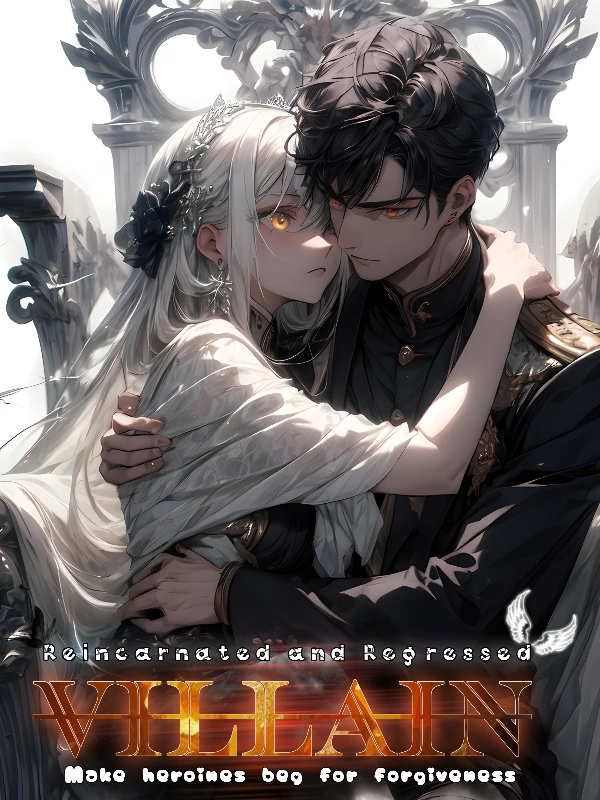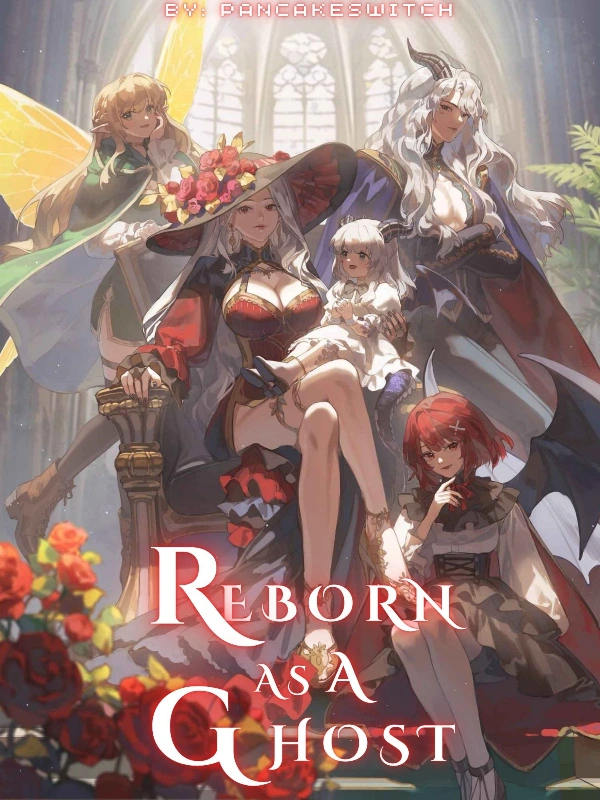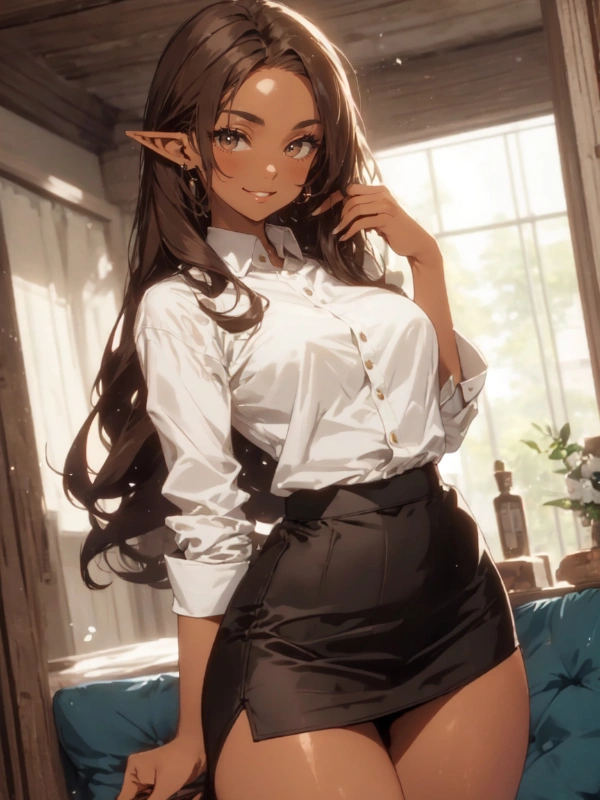Across the battlefield, two other goddesses stood in silent vigil over the Greek forces. Athena, the wise and composed goddess of strategy, watched with a calm, unblinking focus. But beside her, Hera fidgeted, a scowl darkening her face as she observed the growing momentum of Troy’s defenders. Her gaze kept falling back to Hector, Troy’s unbreakable spirit, as he cut through the Greeks like a force of nature.
Hector was stealing the light, and Hera, ever resentful, could barely contain her displeasure.
It should have been Achilles dominating the battlefield, his prowess and rage unmatched as the Greeks pushed forward. Yet, Achilles seemed indifferent, as though the thrill of bloodshed and glory no longer called to her with the same ferocity—or perhaps she was waiting, biding his time, for reasons only she understood. For now, she stood and fight back.
Khillea reveled seemed alive with the pulse of the battlefield, her every movement filled with a fierce joy. To her, this was more than just war; it was a celebration of life, the peak of her existence, and she intended to savor every moment. She knew all too well that her time was limited, that death loomed closer with each passing day. And so, rather than fight cautiously, she threw herself into battle with a reckless abandon, finding delight in every clash of steel and every surge of strength within her. The thought of her mortality didn’t bring fear—it brought freedom.
Moreover, there was the lingering question in her mind: could she be carrying a child? It was a possibility she hadn’t fully grappled with, though it floated in the back of her thoughts, a small flicker of uncertainty in her otherwise fearless heart. She wasn’t even sure yet if it was true, and so it felt too insubstantial to change her course. If fate had woven such a twist into her life, then she would embrace it. But if not, then she would fight on as she always had, unencumbered by worry. Hera, too, seemed to understand this. The goddess’s watchful gaze held no judgment, only respect and perhaps even admiration for Khillea’s boldness. Much like Athena, Hera stood in quiet support, recognizing that Khillea was a force to be reckoned with, perhaps the strongest warrior in this entire conflict.
And while Khillea was essential for the Greeks’ success, his strength was only half of the equation. Agamemnon’s authority, his ability to unite and rally the disparate kings and factions, provided the structure and strategy that bound the Greeks together. Together, they were the heart and the backbone of the Greek forces: Achilles, the raw power, and Agamemnon, the commanding presence, the voice that directed all that fury toward a single goal.
But even as Hera’s gaze scanned the battlefield, her attention drifted, drawn almost instinctively to Hector. The Trojan prince fought with honor, his skill unmatched on his side of the conflict, and yet he bore a strange burden. Another figure, a man cloaked in an aura both eerie and protective, clung to him almost like a shadow. Hera’s lip curled with annoyance as she observed this unusual companion—Heiron, the odd, persistent figure who stuck to Hector’s side like a parasite or, perhaps, a guardian angel. Time and again, Hera had seen this strange man intervene, saving Hector from certain death when the Greek heroes drew dangerously close. Her anger wasn’t directed at Hector, though she had no love for the Trojan prince. Instead, it was Heiron who irritated her, with his uncanny knack for appearing at just the right moment, thwarting attacks that might otherwise have ended the prince’s life.
There had been so many perfect opportunities to end Hector’s life, moments when his defenses were breached, his back exposed. And yet, this Heiron seemed always there, his timing precise, as if he could see fate itself unfolding and knew just when to act to alter it. Hera’s frustration simmered. In her eyes, Hector’s survival had ceased to be a matter of skill or fortune and had become an inexplicable farce, kept alive by this meddler’s interference.
And then, Hera cast her gaze upward to the walls of Troy, where the gods watched the battle unfold like a grand spectacle. Among the divine faces, one was conspicuously absent—Apollo, the god of prophecy, healing, and archery, the patron of Troy. His missing presence was a wound in the Trojan defenses, a gap in the divine support they relied upon. Without his blessing, the Trojans were left vulnerable, struggling to hold their lines under the relentless Greek assault. Yet, despite the absence of Apollo’s radiant protection, the Trojans endured, fighting on with a tenacity that bordered on miraculous.
In place of Apollo, Heiron had emerged as Hector’s savior. Though he seemed unremarkable at first glance, something about him defied explanation. He wasn’t particularly imposing or even visibly powerful, yet his uncanny ability to appear precisely where he was needed left Hera both perplexed and seething. Every time she thought Hector would fall, Heiron would materialize, his arrival so impeccably timed that it defied reason.
For two long months, the stalemate had dragged on, each day filled with grueling combat and tense strategies. The unrelenting clash had left both sides teetering on the edge of exhaustion. Though he didn’t seem like an immediate threat, Hera had begun to consider the idea of eliminating Heiron first. In her mind, the move was calculated: Hector appeared deeply reliant on Heiron’s presence. Without him, there was a high chance Hector would lose his composure, become reckless, and eventually meet his end more swiftly without his steadfast protector by his side. It was a tempting possibility—one Hera contemplated with an almost casual cruelty.
Alongside Hera stood Athena, a silent sentinel, her presence radiating a calm yet potent confidence that seemed to breathe strength into the Greek forces. Her blessing rippled through the ranks like an unseen force, empowering her warriors with heightened resilience and conviction. In the absence of Apollo, the Greek army should have overwhelmed the Trojans entirely. But Ares, the god of war himself, had thrown his allegiance behind the Trojans, breathing his own war-blessing into their soldiers, turning the conflict into a deadlock that refused to yield.
Athena’s icy gaze was fixed not on Ares, but on Aphrodite. The goddess of love had meddled yet again, drawing Ares to the Trojan side with her relentless charms and tantalizing allure. She was as infuriating as ever, a constant thorn in Athena’s side. Aphrodite’s wiles posed a grave risk, one that Athena couldn’t afford to ignore. Left unchecked, she could easily sway more gods to her cause, tipping the delicate balance in the Trojans’ favor. She was, after all, a master at manipulation, her allure undeniable and her influence far-reaching—a reality that both goddesses found troubling.
Suddenly, a stirring in the battlefield below captured their attention. A murmur spread like wildfire among the troops, growing louder as soldiers pointed and murmured to one another. All eyes turned to the area where Hector and Heiron fought side by side. A lone figure had stepped forward, striding through the dust and chaos with an unmistakable aura of strength. His gleaming armor marked him as a commander of the Greeks, a figure of considerable power and renown.
Neither Hector nor Nathan recognized the man, yet something about his face stirred a faint sense of familiarity in Nathan. The newcomer’s mouth curled into a grin, fierce and unrestrained, as he drew his sword and leveled it at Hector with a fierce determination.
“I am Teucer, son of Telamon of Salamis!” he declared, his voice ringing out over the din of battle.
“Ajax’s brother?” Hector responded, raising an eyebrow. Telamon, the former king of Salamis, was known far and wide not only as Teucer’s father but as the sire of Ajax the Great himself.
At the mention of his brother, Teucer’s face twisted with a flash of anger. His name was Teucer, not merely Ajax’s brother! He resented the shadow cast by his sibling, who always seemed to soak up the glory, leaving Teucer to languish in obscurity.
“I will take your head, Hector,” Teucer growled, a dangerous glint in his eyes. This was his chance—his opportunity to carve out his own legacy, to prove himself superior to his famed brother.
Hector braced himself to face this new adversary, stepping forward with his weapon raised, only for Heiron to suddenly intercept him.
“Heiron?” Hector called out, momentarily taken aback.
“Leave him to me,” Nathan—disguised as Heiron—replied, his expression set with a chilling gaze.
Seeing the cold gaze in his friend’s eyes, Hector understood. With a faint smile, he nodded, retreating to watch as Nathan prepared to meet Teucer’s challenge.
Teucer’s fury only grew as he watched Hector retreat, leaving the fight to his subordinate. His eyes narrowed, lips curling in disgust.
“What does this mean, Hector?! Are you so afraid of me that you send a mere soldier to fight in your place?” he sneered, his voice dripping with contempt.
Nathan stepped forward calmly, his expression as icy as his words. “Hector doesn’t need to waste his time with trash like you to prove his worth,” he replied, his tone cold and unwavering.
At this, a ripple of excitement spread among the surrounding soldiers. The battle around them slowed as warriors turned to witness the impending duel between the famed Teucer—the brother of Ajax—and the mysterious mercenary loyal to Hector. A tense hush settled over the crowd, all eyes drawn to the confrontation.
“What did you say?” Teucer’s murderous gaze fixed upon Nathan, his face darkening with rage.
“Ah, so you are Ajax’s brother,” Nathan remarked with a disdainful tone, ignoring Teucer’s question entirely. His words cut deep, filled with a cold venom. The title he spoke was not one of respect but of contempt, for Teucer was the sibling of the man who had dared to lay hands on Aisha, even trying to harm her. Nathan’s own anger simmered just beneath his calm facade.
Teucer’s face twisted in fury, his eyes blazing. “I’ll kill you for that!” he spat, his voice raw with hatred.
Without hesitation, Teucer lunged, covering the distance between them in an instant, his sword slicing through the air toward Nathan’s head. But in a flash, Nathan was gone, his figure vanishing like a ghost before Teucer’s strike could land.
“What?!” Teucer gasped, stunned. He whirled around, his world a blur of spinning colors and chaos. In his disoriented state, he felt a sharp, cold grip on his final moments as blood filled his mouth, the life draining from his body.
He met Nathan’s gaze—those cold, unyielding blue eyes staring back at him with merciless precision. Nathan held Teucer’s decapitated head by its hair, his arm raised as he hurled it high into the sky. The severed head arced over the battlefield, visible to all with keen enough vision. Greek kings and commanders across the battlefield turned, witnessing the grim trophy as it spun through the air, blood raining down.
But Nathan’s aim was clear. He wanted only one man to see it: Ajax.


